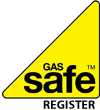Top Advice On What To Do If Your Radiator Starts Leaking
There’s nothing worse than coming home on a cold day to find the central heating hasn’t kicked into gear and the house is as chilly as it is outside. There are many reasons why your heating might not be working, including leaking radiators.
It is quite common for radiators to leak, but it is important to take steps to stop the leak as quickly as you can, not only to keep yourself and your home warm but to prevent further damage being caused to your radiator.
The best thing to do is to find out where it is leaking from. The leak will typically originate at the valve or at the pipe connections, so check these areas carefully.
To ascertain where the leak has started, use a kitchen roll to wipe over the different areas and see when it comes out dry or wet.
Another sign there is a leak is if there is a gurgling noise coming from the radiator or a hissing sound from the pipes or valves.
The next step is to turn the radiator off and wait around 30 minutes so it can fully cool down.
When it feels cold, you can try to drain the radiator yourself or you could call out an emergency plumber to look at the problem for you.
If you choose to do it yourself, close the thermostatic and lockshield valves and place a bucket underneath the system.
Take the thermostatic radiator valve nut off and the water should start bleeding out of the radiator.
The next step is fixing the leak, which can be done with plumber’s tape over the hole, replacing the radiator valve, or pouring a solution in the central heating system.
If these don’t work, it could be a more serious problem, such as your pipes or the radiator itself having started to corrode. In this case, you need expert assistance or may have to replace the radiator.


